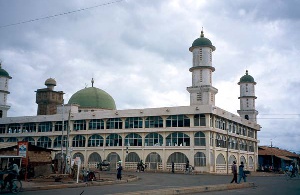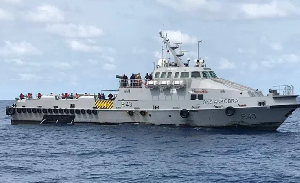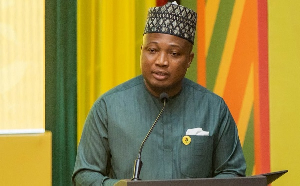Islamic clergy and chiefs have been urged to work towards demystifying the notion that some Muslem communities harbor extremists who are capable of easily fomenting violence.
Reverend Eric Adjei Nmai, a Board Member of the National Peace Council, said this at an orientation workshop held recently at Bolgatanga.
Aimed at ensuring peaceful election, the programme which was organized by the Islamic Foundation for Peace and Development with support from the United Nation Development Programme (UNDP) and the Danish International Development Agency, attracted the Islamic clergy, chiefs and the youth.
Reverend Nmai said research shows that it was only a minority of Muslems who were violent and urged the Islamic clergy to use their various platforms such as the mosques to reform the few who would want to mar the reputation of Moslems.
He said during the Rwanda genocide, some Muslems played a very significant role by saving the lives of many people and this act led to many converting to Islam.
The stakeholders pledged to embark upon peace talks using various platforms including the mosque, market place and their homes to educate the youth on the need to stay away from violence.
Mr Garba Auwudu -Talle, the Executive Secretary of Islamic Foundation for Peace and Development, said his outfit has organized similar programmes in all the ten regions of the country.
He called on the stakeholders to use dialogue and laid down channels in addressing grievances instead of resorting to violence.
Mr Rejoice Afadzinu, Programme Assistant of the UNDP, said the issue of peace and security was very crucial to UNDP and impressed upon the electorate not to do anything that would jeopardize the peace in the country.
'During electoral violence, it is the electorate who suffer; not the politicians who often escape with their families to other countries', she said.
Religion of Tuesday, 22 November 2016
Source: GNA















